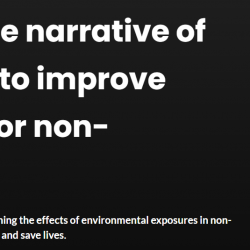CanPath Scientific Director presents at AGBT Meeting
Advances in Genome Biology and Technology (AGBT) is “considered the preeminent genome science and technology conference where top global researchers, leaders and innovators meet to announce new discoveries, cutting edge breakthroughs and to collaborate.” CanPath Scientific Director, Dr. Philip Awadalla attended the AGBT Precision Health meeting in San Diego, California from September 7-9, 2023. Dr. Awadalla was a panelist speaking about The Great Debate, Genetics, Environment, and Health, alongside Dr. Gary Miller (Columbia University) and Dr. Alison Motsinger-Reif (National Institute of Environmental Health Sciences).



